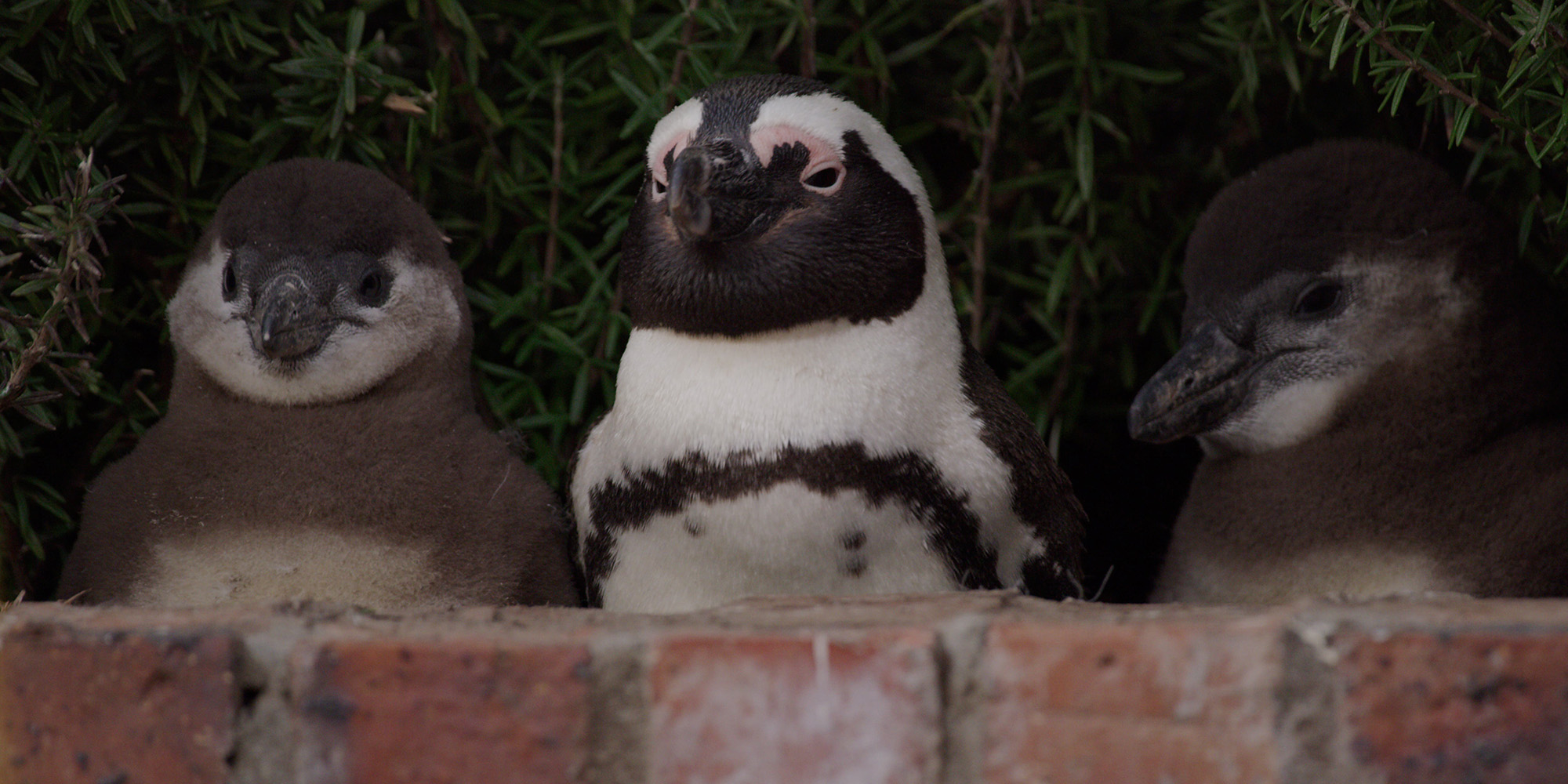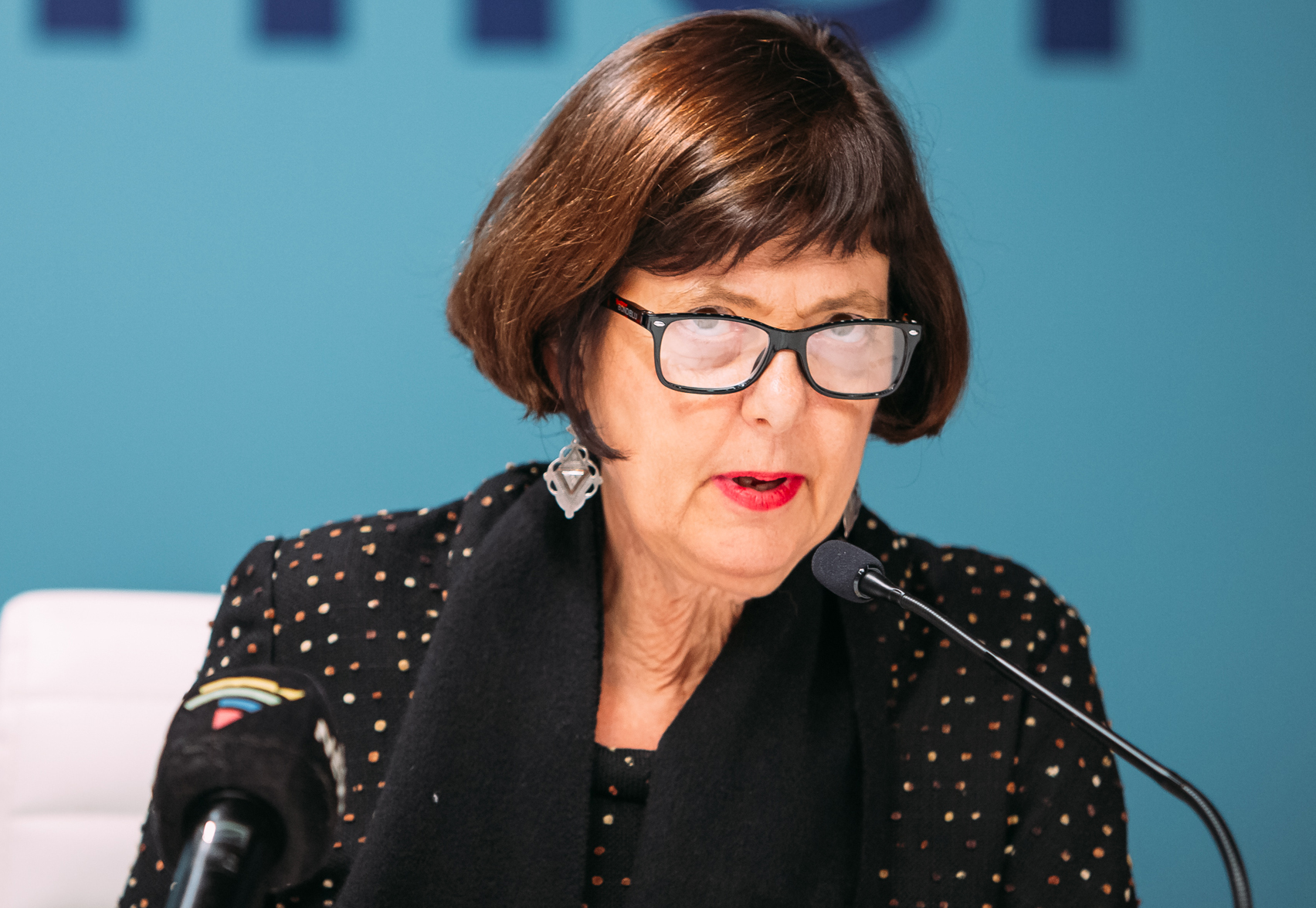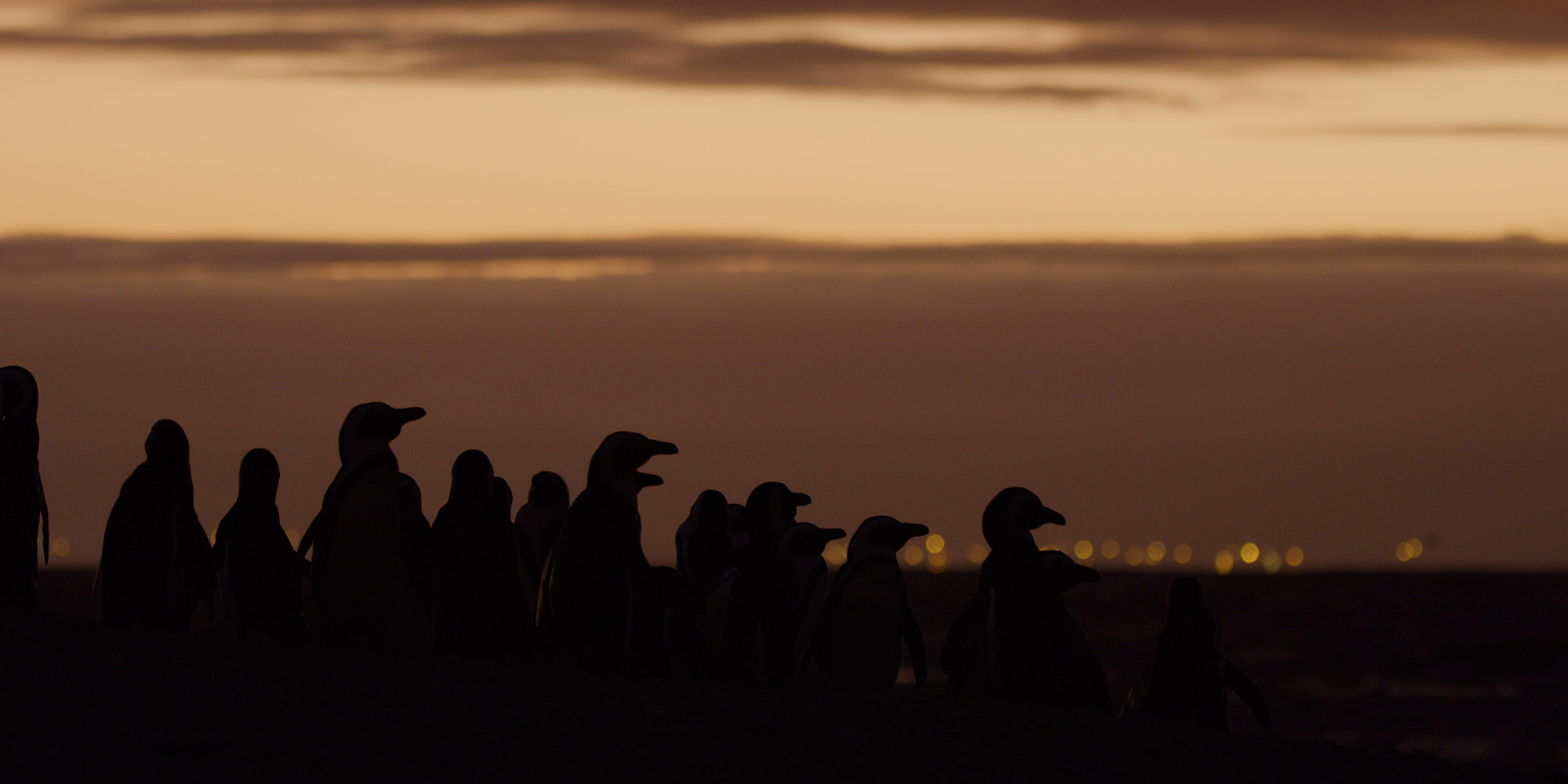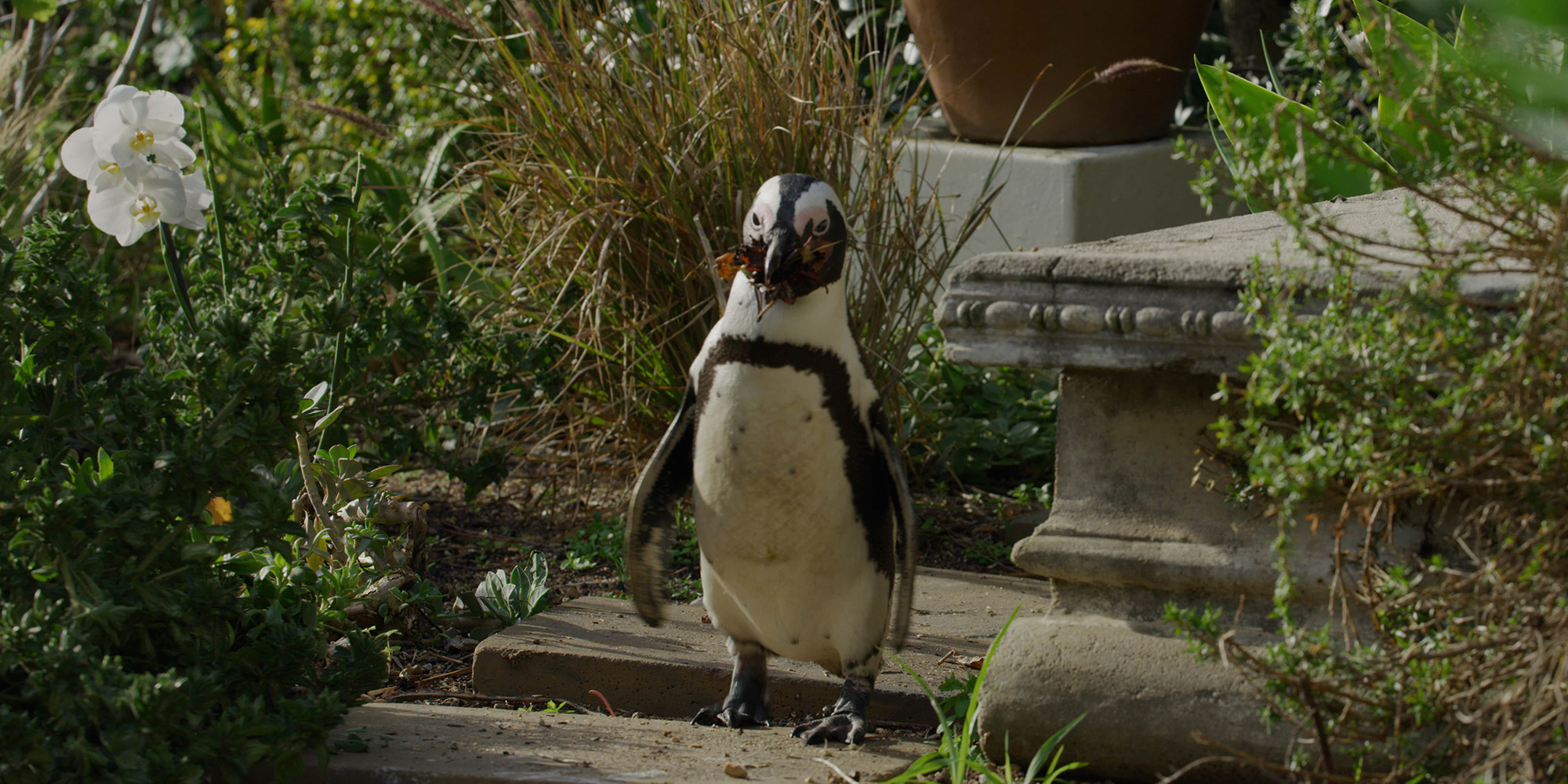It’s a miracle you’ve even clicked on this article.
Animal conservation — like climate change, like coronavirus, like world hunger — has become a topic so entrenched in the news that we’ve caught compassion fatigue from it.
Susan Sontag, a prominent commenter on the effects of journalism, famously said, “In a world saturated... no, hyper-saturated with images, those that should matter have a diminishing effect: we become callous. In the end, such images just make us a little less able to feel.”
We’ve all seen our fair share of harrowing conservation images: seagulls stuck in plastic rings, polar bears scrambling on melting ice caps, penguins’ feathers drenched in spilt oil.
Sure, it tugs at the heartstrings, but after a while, seeing too much of the horror can overwhelm a person or even make them become numb to it altogether.
This is where penguins come in.
The African penguin made the International Union for Conservation of Nature (IUCN) Red List of threatened species in 2010, classifying them as endangered.
Dr Lauren Waller, from the Southern African Foundation for the Conservation of Coastal Birds (Sanccob), paints a grim reality: “In the 1920s, African penguins were likely Africa’s most abundant seabird. It’s estimated that there were approximately 0.5–1 million breeding pairs. By 2019, the species had declined to approximately 17,700, with about 25% in Namibia and 75% in South Africa.
“Since 1979, the population in South Africa has declined fairly consistently, with an annual rate of decline of about 5%.”
So how do you get people to care?
Pippa Ehrlich, who took home an Oscar for directing My Octopus Teacher earlier this year, knows all about the success of using documentary film to get people to care.
“Conservation has been a very difficult thing to get right, and I think storytelling can play an important role in that,” says Ehlrich.
“There’s an amazing American scientist, Peter Kareiva, who once said to me, something like, ‘science tells us what to do, but storytelling makes us want to do it’.”
Penguin Town, recently trending in the top 10 in South Africa on Netflix, could be the kind of story that gets people to care about penguins. This docu-series observes an African penguin colony on the Cape Peninsula over six months, during their breeding season.
But it’s not as serious as it sounds.
It’s narrated by American actor and comedian Patton Oswalt, who throws in plenty of puns like, “He’s put his best flipper forward.” It’s set in Simon’s Town, where we get to see “a thousand monogamous penguin couples with one agenda: to mate their way off the endangered species list”.
To give you a sense of the tone of the series, over multiple shots of penguin couples humping each other, Oswalt deadpans: “Please, carry on you two… your colony needs you.”
We’re introduced to the “shady car park gang” and characters like the Bougainvilleas, the soulmate couple who’ve been together half their lives; the Culverts, newlyweds who are looking for a place to nest; the Courtyard family, who set up their nest in a swanky house in town, and Junior, the “misfit” who goes to Sanccob for rehabilitation.
Anthropomorphising the penguins helps us to relate to them and, with a light-hearted script and narration, we don’t get emotionally drained watching the series.
But while undeniably cute and funny, it also highlights the great lengths penguins go to keep their species alive. We get to understand the obstacles they have to overcome, from extreme heat and flooding, disease, lack of food, predators, pollution and poor breeding habitats.
Dr Katrin Ludynia, research manager at Sanccob, said: “We believe the most important hazard, and the one that is not being dealt with sufficiently, is the lack of food caused by industrial fishing (and possibly overfishing along the West Coast), environmental changes and shifts in prey distribution.”
Field producer of Penguin Town, Cayley Christos, told Daily Maverick, “Initially, we were just looking for a really charismatic animal that we could tell a fun wildlife story about. It was really only once we went down there and started doing our research… did we realise what a bad situation penguins are in.
“And it really is dire. I mean, they are 2% of their numbers from 100 years ago, and Sanccob was saying to us that in 10 years’ time, if this doesn’t stop, they’ll become extinct. So that’s terrifying.”
A fine balance
There’s a fine balance between showing the grim reality of a situation enough so that people take notice, but not so much that they are overwhelmed with despair to a point where they develop compassion fatigue and switch off.
“Going down there and seeing how fun the penguins are... how relatable they are, we knew that we would have to get the conservation message across and get people to care a lot more,” said Christos.
“It’s a difficult balance. I think there are probably some people who think we’re making light of a very serious situation. But I disagree with that.
“I think people have had a really hard year. Everybody’s hearing about global warming, about fires, viruses, animals dying out, forests being cut down… you don’t want to hear all the bad news all the time.
“We had to be quite careful about how to tell the story. We could have taken it further,” says Christos, explaining that they chose not to include shots of penguins trapped in plastic bags.
“Sure, we could have said that humans are terrible, penguins are dying. But then you cause a lot of people to switch off.”
Christos said she’d already heard of people wanting to stop watching after seeing one penguin couple get “divorced” and lose their eggs in a flood.
“People are really sensitive to this kind of thing. And I think, especially at the moment, extra sensitive to any negative information. So how do you keep them engaged, get them connected, make them care without making them switch off?
“I hope we’ve found a balance. I hope that through the fun and in the space of just one series, people will start to really care.”
Penguin Town has only been out for a couple of weeks, but Christos says she has already seen people on Twitter pledging to donate to Sanccob and expressing how they want to help this endangered species.
A new way of telling sad stories
 ‘Penguin Town’ observes an African penguin colony on the Cape Peninsula over six months, during their breeding season. (Photo: Courtesy of Cayley Christos)
‘Penguin Town’ observes an African penguin colony on the Cape Peninsula over six months, during their breeding season. (Photo: Courtesy of Cayley Christos)
Campaigning for endangered species, and producing documentaries about them, is nothing new.
Even Patton Oswalt says in the opening line of the series, “There are a lot of movies about penguins.”
But as Sontag says, we live in a world “hyper-saturated” with information and images, so there is a need to relook at how we tell these sad stories.
“I think we’ve tried the sad story approach for forever, and it hasn’t really worked,” says Ehrlich, who received tremendous support in response to the conservation aspect of My Octopus Teacher — including two letters of support from President Cyril Ramaphosa calling for greater marine conservation.
“So we need more creative solutions based on ways of telling the stories, right, rather than pointing out the problems all the time and saying these are the bad guys.”
“I do think that a new way of storytelling, and a better way to do it, and a way to reach a much wider audience, is to first get people attached,” says Christos.
“When people are attached, they care more — just like you might care a lot more about your own dog. And so, as soon as something has a name, a personality, a backstory… people become invested in what happens with that animal.”
“You know, filmmaking is an alchemical process,” says Ehrlich. “You rely on images and sound to not just tell a story and not just relay a series of facts, but the combination of those two things gives you an almost magical way of creating feeling.
“Human beings are governed by our brains, but we are largely governed by our emotional bodies. And that’s what’s powerful about documentary — you can speak to people’s hearts, even before you speak to their heads.”
Now that we care, what’s next?
Conservation groups like Sanccob and BirdLife SA already have ongoing initiatives to bolster the penguin population. They are hand-rearing hundreds of chicks and rehabilitating injured, weak or oiled penguins before releasing them back into the wild; setting up more colonies and tracking penguins to see where they go and which areas need to be protected for them to find food.
However, as Katrin Ludynia from Sanccob says, “The main issue — the lack of food and the industrial fishing on ever declining sardine stocks — is not being dealt with.”
 Minister of Forestry, Fisheries and the Environment Barbara Creecy. (Photo: Flickr / AfDB Group)
Minister of Forestry, Fisheries and the Environment Barbara Creecy. (Photo: Flickr / AfDB Group)
Thus, Sanccob, BirdLife SA, WWF South Africa, UCT’s department of biological sciences and Nelson Mandela University have asked the Minister of Forestry, Fisheries and the Environment, Barbara Creecy, to come up with a law that bans fishing within a 20km radius of the six major penguin islands and colonies in South Africa (Dassen Island, Robben Island, Stony Point and Dyer Island in the Western Cape, and Bird and St Croix islands in the Eastern Cape).
This recommendation is based on peer-reviewed results of marine ecologist Dr Richard Sherley’s assessment of an island closure experiment that ran from 2008 to 2019, which aimed to determine if closing four islands to fishing within a 20km radius of penguin colonies benefited the penguins.
Although the findings were inconsistent, there were more positive than negative results, with Sherley saying, “Our results demonstrate that fishing closures improved chick survival and condition, after controlling for changing prey availability.”
Creecy does seem to be taking the matter seriously. “She has commissioned a task team within her department, comprising scientists, SANParks and fisheries, to synthesise the scientific information that relates to the decline of this species, the small pelagic fishery and island closures, and to come up with recommendations on the way forward. It is expected that this recommendation will be made this year,” says Waller.
Waller adds, “It’s difficult to say what is going to happen, although this year is really crunch time. The African penguin, without being extremist, really is in crisis and every action to reverse the trend needs to be taken… and soon.”
Ludynia speculates that the delay is mainly attributed to “the economic pressure that the [fishing] industry is putting on the minister and the department, claiming, or maybe threatening, that thousands of jobs would be lost if they weren’t able to fish around the islands.”
Ludynia believes that, should food sources dry up and African penguins start dying out, there would be a considerable economic impact due to the loss of revenue these unique birds generate in the tourism, hospitality and entertainment industries.
So why should we care?
 While undeniably cute and funny, ‘Penguin Town’ also highlights the great lengths penguins go to keep their species alive. (Photo: Courtesy of Cayley Christos)
While undeniably cute and funny, ‘Penguin Town’ also highlights the great lengths penguins go to keep their species alive. (Photo: Courtesy of Cayley Christos)
“The value of the African penguin is obvious as a charismatic species... it’s Africa’s only penguin species, but it’s also a sentinel species — it basically gives us an indication of what’s happening with the prey that they rely on,” according to Dr Alistair McInnes, seabird conservation programme manager at BirdLife South Africa.
McInnes explained that because African penguins feed almost exclusively on anchovies and sardines, a depletion of the penguin population would indicate that there’s something going on with stocks of those fish.
McInnes said this applied to the sustainability of other species: “When their numbers go down, that’s a reflection of other predators reliant on those fish as well — certain dolphins, line fish and other species.”
“African penguins are also a good indicator of pollution, especially oil pollution, and to a certain extent climate change, as this is likely to play a part in the frequency of extreme weather events and the altered distribution of their prey,” says McInnes, cautioning that this area does need further investigation.
Protecting an ecosystem
Christos says, “If you are protecting penguins, then you automatically have to protect the kelp forests... And when you protect the kelp forests, then you’re protecting octopus, fish, different shark species that live there... and that’s amazing.
“So sometimes it just takes that one, really cute, relatable animal in an ecosystem to make sure that that entire ecosystem is properly protected.”
Economic benefit
African penguins bring in a fair amount of money.
In a study commissioned by the City of Cape Town in 2018, Dr Hugo van Zyl and James Kinghorn reported that in 2017, the African penguin colony in Simon’s Town alone brought in 930,000 visitors, created 885 jobs and generated R311-million.
Hopefully, the unconventional approach taken by Penguin Town will generate more interest, compassion and awareness among audiences.
But, as Sontag said, more will be needed after that: “Compassion is an unstable emotion. It needs to be translated into action, or it withers.” DM/OBP




 While undeniably cute and funny, ‘Penguin Town’ also highlights the great lengths penguins go to keep their species alive. (Photo: Courtesy of Cayley Christos)
While undeniably cute and funny, ‘Penguin Town’ also highlights the great lengths penguins go to keep their species alive. (Photo: Courtesy of Cayley Christos) 